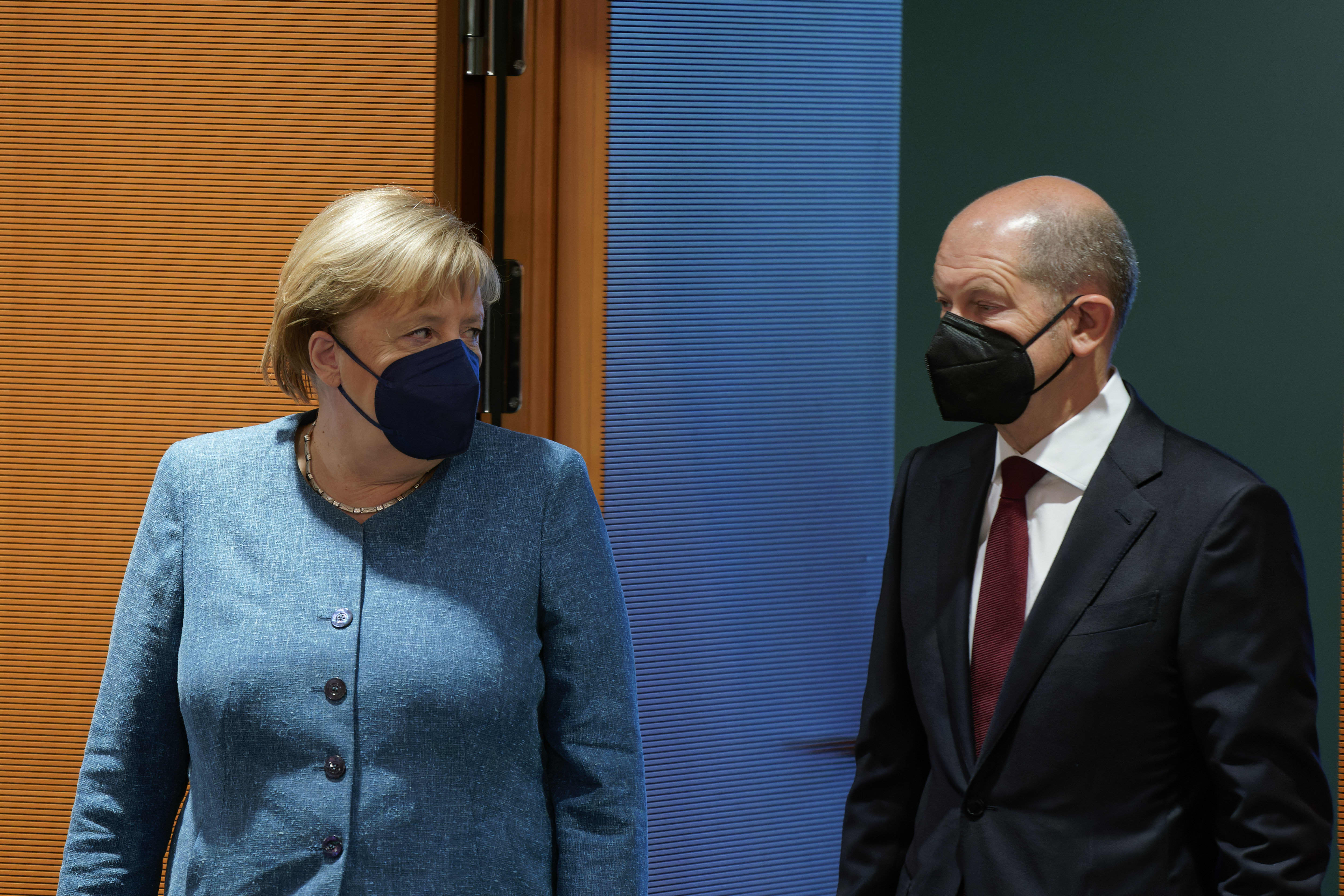Products You May Like
Germany’s Covid-19 crisis continues to rock the nation with the grim news on Thursday that the total number of deaths has now surpassed 100,000.
The country’s new incoming coalition government is resisting a lockdown, for now, however.
Germany reported a massive number of new Covid cases on Thursday, with over 75,000 new infections in the last 24 hours (and up from 66,884 on Wednesday), while the death toll has now reached 100,119 after 351 more people died from the virus during the previous day.
Government officials have been watching rising cases with alarm for weeks now, and the country’s outgoing Chancellor Angela Merkel reportedly pushed for a two-week lockdown during a meeting on Tuesday with the country’s incoming coalition government.
According to the Bild newspaper, the new government alliance of the left-leaning Social Democrats and Greens and the pro-business Free Democrats pushed back against the idea, preferring instead to wait and see whether tighter Covid restrictions announced last week would work to help lower infections.
While Merkel had proposed a lockdown, to begin on Thursday, which would have seen shops, bars and restaurants close, the idea was rejected by the incoming government who said it would have been interpreted by the public as a “bad political trick” by the old and new government, Bild reported Wednesday.
Compulsory vaccination
Olaf Scholz, Germany’s former finance minister and vice chancellor, is set to become the country’s new chancellor when Merkel leaves the post after 16 years in office. The new coalition government is expected to take office in mid-December.
Read more: Olaf Scholz replaces outgoing German chancellor Angela Merkel as a new coalition is announced
After the coalition’s deal and policy ambitions were announced Wednesday, Scholz signaled that the Covid crisis was an immediate priority for the government. He begun a news conference announcing the coalition deal by saying that the virus situation in Germany was serious and that the country would expand its vaccination campaign, including mandating vaccines for some people.
“Vaccination is the way out of this pandemic. In institutions where vulnerable groups are cared for, we should make vaccination compulsory,” Scholz said, without specifying further details.
Meanwhile, incoming Finance Minister Christian Lindner stated that Germans should avoid all unnecessary contact this winter “to preserve all of our health in this pandemic.”
Germany has already tightened Covid rules amid the latest fourth wave of cases in the country.
Many states in Germany have already restricted access to public spaces like bars, restaurants, movie theaters and museums under “2G rules,” restricting access to only those who are vaccinated — “geimpft” in German — or recovered, “genesen.” A number of major German Christmas markets which have not been canceled this year have also adopted 2G rules.
On Wednesday, new measures came into force imposing “3G” rules on public transport and anyone going into a workplace, meaning that more public spaces are restricted to the vaccinated, the recently recovered, or those that have had a negative test (“getestet”).
If Germany opts for compulsory vaccinations in some settings, it will not be the first to do so. The U.K., France and Italy are among the countries that have adopted (or are introducing) compulsory vaccination for some sectors, such as health care or care home workers.
Still, compulsory vaccinations are a thorny subject and have many ethical considerations and Germany could expect to see a pushback against the move, as other countries have done.
Read more: Are Covid vaccine mandates ethical? Here’s what medical experts think
Germany has tried to encourage voluntary uptake of the Covid vaccination among its population yet it has one of the lower Covid immunization rates in western Europe, with 68.1% of its population fully vaccinated.
Vaccine hesitancy, the incoming winter season and the spread of the highly infectious delta Covid variant, which is far more virulent than previous strains, make the virus far harder to contain this time around for Germany, a country widely praised for its initial handling of the pandemic.
